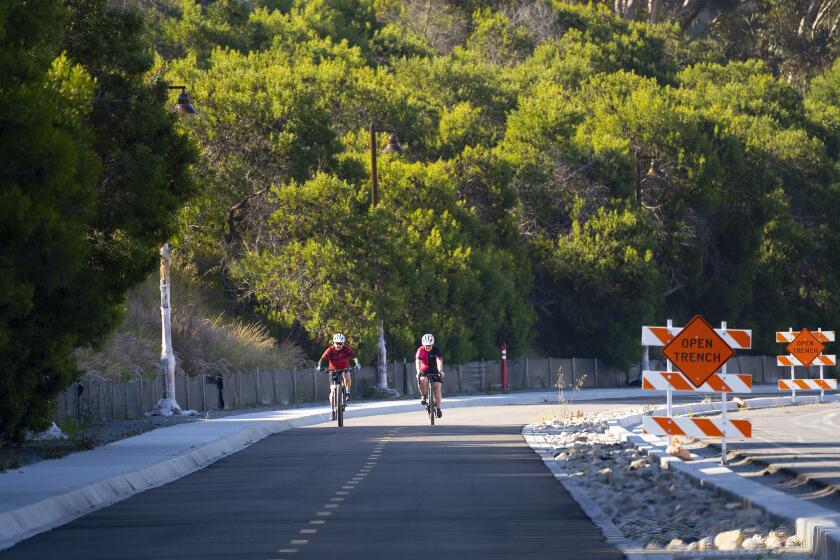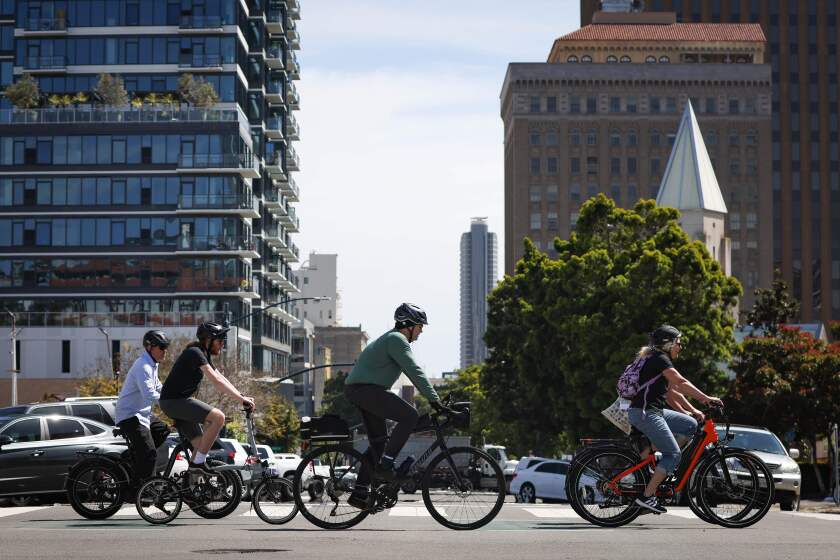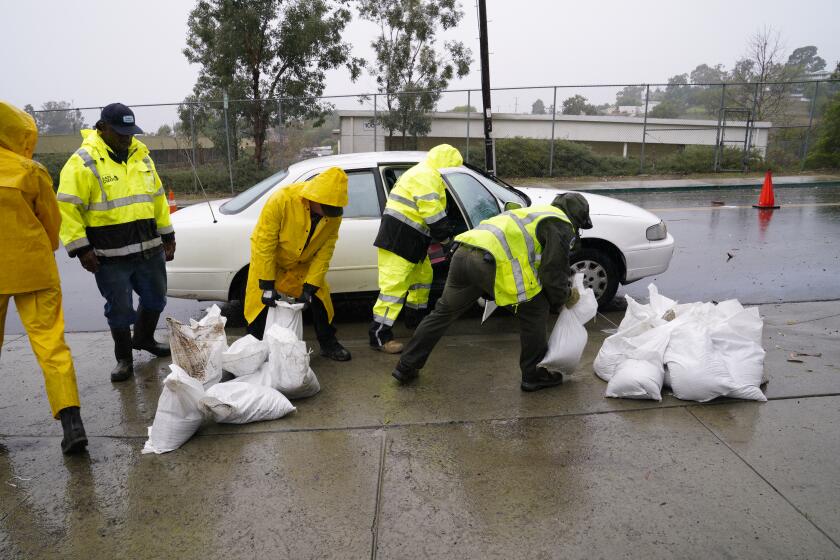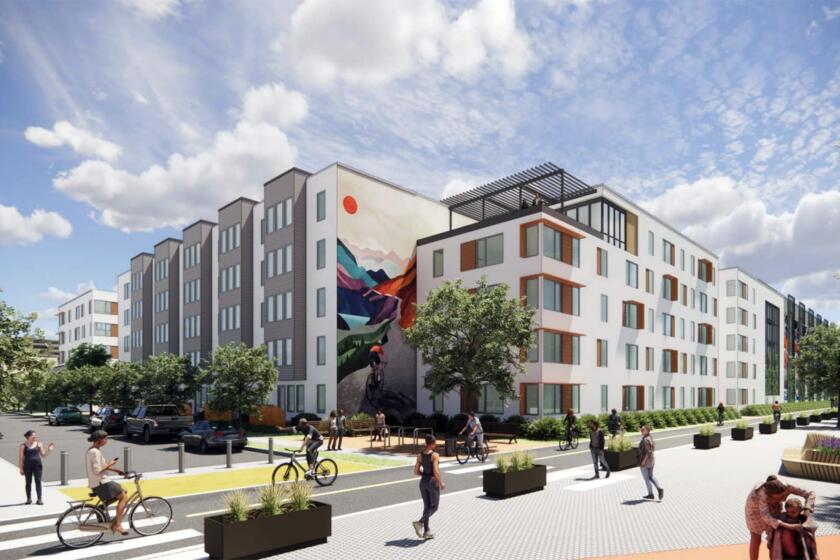San Diego proposes sweeping crackdown on scooters as usage revives after pandemic lull
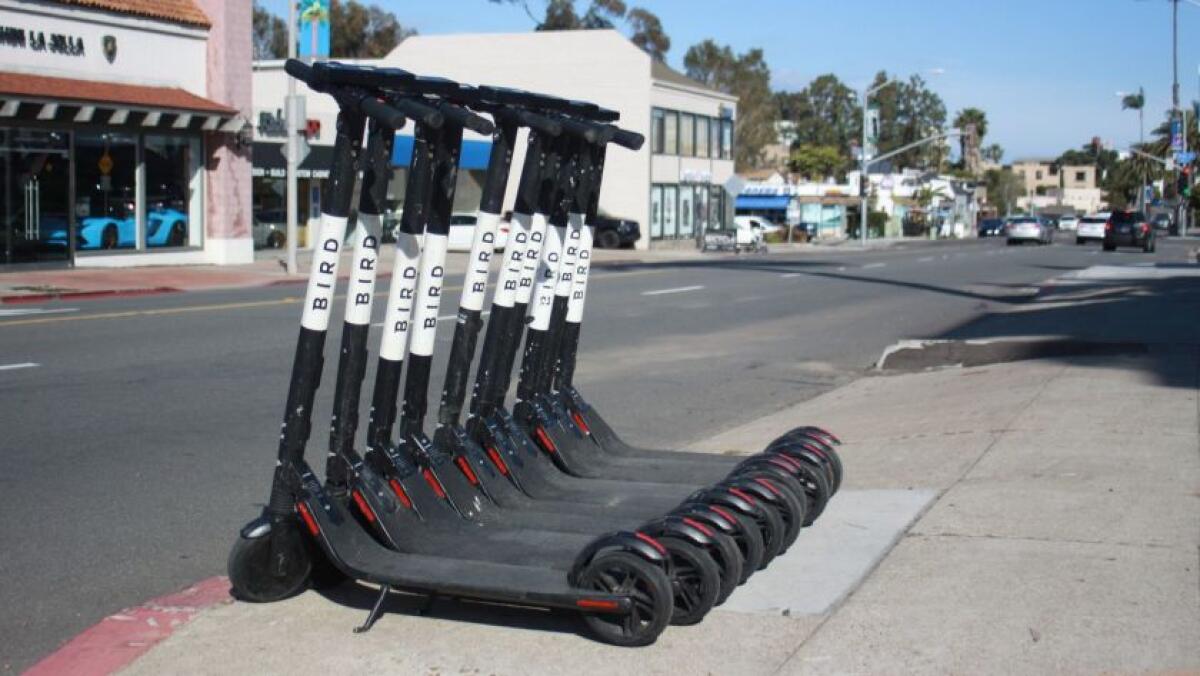
New rules would make operators more accountable, prohibit use on sidewalks and parking outside corrals
San Diego is proposing sweeping changes to how the city regulates electric scooters, including a crackdown on sidewalk usage, rules against staging scooters in large clusters and a ban on parking scooters anywhere but city-painted corrals.
The city also wants to shrink the number of companies allowed to operate scooters, quadruple the annual fee they’ve been paying and require operators to respond to complaints about their scooters within one hour.
This story is for subscribers
We offer subscribers exclusive access to our best journalism.
Thank you for your support.
The comprehensive proposal comes with scooter use sharply increasing after a two-year lull that city officials and scooter operators have blamed on pandemic-related restrictions.
City officials characterize the proposal as a balancing act. They say they want to respond to years of vocal complaints from residents about scooter mischief, while also allowing scooters to become a viable new mobility option for many people.
The proposal would extend the city’s scooter regulations for the first time to electronic bikes, another new form of transportation that is quickly gaining popularity — especially in the city’s urban and beach neighborhoods.
The proposal, which was approved unanimously this week by the City Council’s Active Transportation and Infrastructure Committee, is scheduled for a vote by the full council in late May. It could take effect as soon as July.
Reactions to the proposal were mixed this week from both scooter companies and critics of scooters.
Some scooter company officials complained that several of the nearly two dozen new rules and policy proposals hadn’t been shown to the companies until just a few days ago.
But Justin Ireland of scooter operator Lime said the proposals are reasonable and fair.
“Some companies may find it difficult to adhere to some of these changes, but we proactively have been doing these changes for the past six months and they do work,” he said. “We look forward to being a better partner with the city.”
Safe Walkways, an anti-scooter group focused on boosting pedestrian safety, praised the rules but questioned whether the city will enforce them aggressively.
“We’re very concerned that good intentions on paper are useless unless enforced,” said Janet Rogers, one of the group’s leaders.
Council members on the infrastructure committee were less skeptical.
“When these things arrived in San Diego with no rules or regulations, it was a mess,” said Councilmember Dr. Jennifer Campbell. “I believe this is a really good step in the right direction.”
The changes would simultaneously crack down on reckless scooter use and fundamentally shift the city’s operating model from permit-based to a request-for-proposals model allowing the city to make more demands of operators.
The proposal would shrink the number of operators from seven to somewhere between two and four, while decreasing the maximum number of scooters allowed in the city from 11,000 to 8,000.
The annual fee paid by each operator would increase from $5,141 to $20,000 and the fee per scooter would be governed by a new model. Instead of paying an annual fee of $67.50 per scooter, operators would pay 75 cents per day for each scooter.
The revised fees would allow city revenue to remain roughly the same, about $1.4 million, despite the decrease in the number of operators.
The scooter companies operating under the most recent round of permits, which expire in July, are Bird, Lime, Link, Spin, Lyft, Wheels and VeoRide. The city would decide which operators can continue with the request-for-proposals process.
Operators would be required to deploy a mix of electronic scooters and bicycles. And they would be more accountable for bad behavior by scooter riders and be required to give the city more data for compliance and enforcement efforts.
Another factor determining which operators the city may choose is a requirement that each operator include in its proposal an equity plan explaining how they would boost usage of mobility devices in low-income areas.
For example, a company could propose creating scooter corrals in low-income neighborhoods where usage has typically been low, which makes revenue from scooters in those areas lower than revenue from scooters in wealthier areas.
The crackdown on usage includes at least 15 new policies and regulation changes. Many of them would require companies to use technology called geofencing to cripple scooters when they enter illegal areas and to slow them down in other areas.
A key element would be reducing from three hours to one hour how quickly operators must respond to complaints about scooters submitted to the city’s Get it Done! tipster app.
Scanning of driver’s licenses would be required to prevent usage by underage riders, and each rider would be forced to read rules regarding usage, parking and geofencing.
Operators could no longer cluster more than four scooters together and scooters would have to be parked in city-painted corrals. But e-bikes and other dockless bikes could use public bike racks. Operators also could no longer increase the number of scooters for special events, such as Comic-Con.
All scooters would need to be labeled, in 40-point font, with decals saying “riding and parking on sidewalks are prohibited.” They would also need to have displayed, in 88-point type, a device identification number.
The changes would also clarify and strengthen rules for impounding scooters and include penalties for companies who choose to cease operations before their contract expires.
Scooters were unregulated in San Diego from when they arrived in 2018 until the spring of 2019, when the existing regulatory framework was created. In winter 2020, the city banned scooters on boardwalks and in some parks.
Get Essential San Diego, weekday mornings
Get top headlines from the Union-Tribune in your inbox weekday mornings, including top news, local, sports, business, entertainment and opinion.
You may occasionally receive promotional content from the San Diego Union-Tribune.

